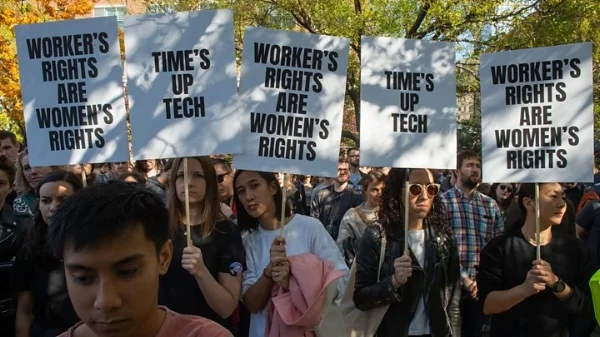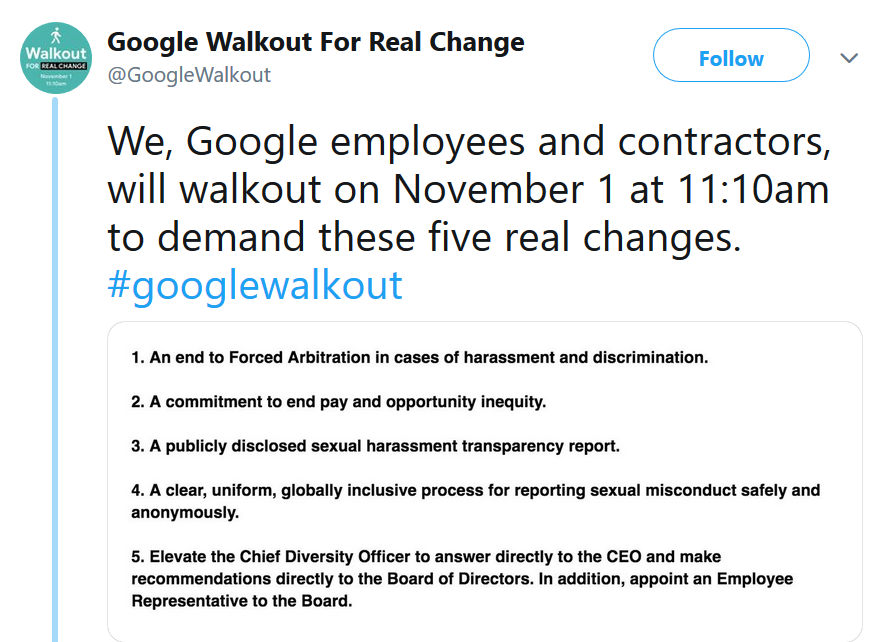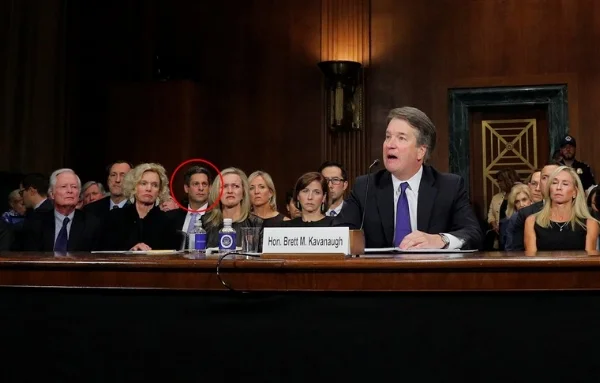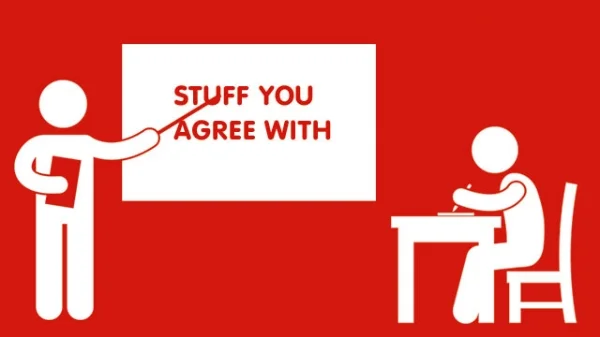HBO CEO Departs
HBO CEO Richard Plepler is leaving the company. His announcement came shortly after HBO’s chair of the board spoke with the WarnerMedia CEO about possibly taking over HBO and Turner.
Here is Plepler’s email to employees:
My dad always gave the best advice. Whenever there was a difficult decision to make, he counseled that since no one could ever have perfect visibility into the future, the best thing you could do was trust your instincts. It has been a touchstone for me throughout my life, and I have found myself returning to it again recently as I think about what is an inflection point in the life of this wonderful company. Hard as it is to think about leaving the company I love, and the people I love in it, it is the right time for me to do so.
In the past weeks, I’ve thought a lot about the incredible journey of this company in the nearly 28 years that I have been blessed to be here. It’s a journey of great pride and accomplishment because so many of you, and many others before us, have made HBO a cultural and business phenomenon. Thanks to all of you, we are today churning on all cylinders both creatively and as a business. Thanks to all of you, I can move on to the next chapter of my life knowing that the best team in the industry remains here to carry on our continued progress and success. As I have said before, this is the team of teams.
It has been the great joy of my professional life to share this ride with you over these many years. And the great honor of my professional life to be your CEO. I don’t have the words to express my gratitude for the support and talent that made our success together possible. But suffice it to say, my love for this place, and for all of you, is deeply a part of me and will last a lifetime. I look forward over the coming weeks to thanking as many of you as I can for the thousands of contributions big and small that have made “this thing of ours,” to quote Tony Soprano, so special. I have told John, who has been nothing but gracious since we spoke, that I would work closely with him to assure a seamless and organic transition.
We’ve created a great and unique enterprise and I know that you will protect its legacy and do all to enhance its future in the years to come.
Know that I will always be cheering loudly, even when I am outside this building, as HBO continues to thrive.
With respect, admiration, and gratitude,
Richard
Discussion:
Assess Plepler’s email. Who are his primary and secondary audiences? What are his communication objectives?
What principles of business communication does Plepler follow, and how could he improve the email?
What, if anything, does he give as the reason for his decision? Should he say more about this? Why or why not?
What leadership character dimensions are illustrated by his email?
Interview with Delta CEO
In a LinkedIn interview, Delta CEO Ed Bastian discussed the decision to revoke the National Rifle Association (NRA) discount after the Parkland, FL, shootings, one year ago. The discount was for NRA members, and only 13 took advantage. But the real loss was in $40 million in tax benefits, which Georgia Governor Cagle fought to strike after the company’s decision.
Bastian admits that the loss was significant. But he concludes, “Our brand is worth so much more, and our values are not for sale.”
Bastian refers to the NRA’s “divisive rhetoric” and says that he didn’t want “to be seen as advocates” of the organization and its views. He also describes what we might call authentic or purpose-driven leadership:
"If you know who you are, you can make those decisions. And that you can make those decisions and sleep well at night.”
Discussion:
What leadership character dimensions are demonstrated by this situation?
Do you think Bastian did the right thing for Delta? Why or why not?
How well does Bastian address the interviewer’s question? Overall, how do you assess his delivery?
Emails to International Duke Students Sparks Controversy
Faculty at Duke University Medical Center have been criticized for asking international students to speak only English. The controversy started when an administrator of the biostatistics program sent an email after hearing complaints from faculty members that Chinese students were speaking “VERY LOUDLY” in their native language in “student lounge/study areas.” The faculty expressed concern that students “were not taking the opportunity to improve their English and were being so impolite.”
Also in the email, the administrator said that faculty asked for students’ names so that they might deny them job and project opportunities.
Students took offense and started a petition. In response, the administrator of the program stepped down from her position, and the university posted a letter to students in the program.
Discussion:
What’s your view of international students speaking in their native language at an American University?
Was the administrator out of line? Why or why not?
How do you assess the university’s response to the controversy?
What leadership character dimensions are at play?
Starbucks CEO Draws His Own Path
Starbucks CEO Kevin Johnson is identifying his own vision for the company—apart from Howard Schultz’s plan. In an interview with the Wall Street Journal, Johnson said that the previous plan to open about 1,000 Reserve cafes will be piloted with just a few stores. Reserve stores deliver a higher-end experience, selling artisanal products and cocktails.
The change is one example of how Johnson is distinguishing himself from Schultz, who was the company CEO for about 30 years. According to the article, Johnson often started meetings with, “I’m not Howard. I’m Kevin.” A couple of weeks after Schultz left, Johnson said about the business strategy, “Certainly, I tend to bring a much more disciplined approach to picking the priorities.”
Starbucks Reserve image source.
Kevin Johnson image source.
Discussion:
Is it important for Johnson to distinguish himself from Schultz? Why or why not?
Read more about Johnson as the new CEO. How well is he handling the transition? What, if anything, should he do differently? He’s in a tough spot, wanting to create his own path but needing to be respectful to the previous leadership.
Robots Screen Candidates' Social Media
A Wall Street Journal video explains how DeepSense uses artificial intelligence to analyze a job candidate’s personality. When companies post a job, recruiters or hiring managers identify what is most important for success; for example, how important is teamwork or project management? DeepSense then looks at a candidate’s social media profile to assess personality.
Founder Amarpreet Kalkat explains that the system may review a social media profile for only six seconds and will generate a report about the applicant’s DISC profile (a personality assessment) and “Big Five” personality traits. Using psycholinguistics, the computer analyzes language the candidate uses.
Kalkat says their results are 75% accurate, while traditional personality tests are 82% accurate.
Discussion:
What’s your view of using AI in this way? How confident would you be applying for a job that uses this technology?
How relevant is personality to a position? What are the advantages to a company of using such a system, and what are the potential disadvantages?
The video refers to “DeepSense,” but the website shows “DeeperSense.” How do you explain the discrepancy?
Acting Attorney General's Credentials Questioned
Acting U.S. Attorney General Matthew Whitaker seems to have inflated his self-description as an “Academic All-American.” The title appeared on a bio for his previous law firm’s website, on an application for a judge position in 2010, and on a resume discovered from 2014.
Whitaker played football at the University of Iowa for two years, but he didn’t receive the official honor, according to the organization that grants the title. In 1992, the title went to another Iowa player.
Part of the confusion may be caused by a media guide produced by the university. An assistant athletic director admitted to describing Whitaker as “District VII academic All-American,” which is not correct.
Whitaker image source. Resume icon image.
Discussion:
The Wall Street Journal report doesn’t include a quotation from Whitaker. What, if anything, should Whitaker say to defend himself?
What on your resume could be called into question? Have you exaggerated any of your experience that could be discovered? Should you change anything to be more accurate?
How is this situation an issue of integrity? What other character dimensions could be at play here?
One Way to Increase Understanding
Wanting a break from technology, singer and songwriter Gabriel Kahane traveled the United States by train, meeting people and hearing their stories. Right after the 2016 presidential election, Kahane rode Amtrak trains for almost 9,000 miles to understand how people across the country think and feel.
Kahane describes his strategy for what he calls “radical empathy”:
I set some ground rules for myself when I was on the train. One of the things that I was really interested in doing wasn't arguing with people. And I think that that is sort of one of the fundamental problems that we face right now, is this idea we all sort of have contempt for the other side.
We say, well, I just can't engage with that person. And there were some cases where I failed, and I would then go back to my sleeper car and write in my journal: You argued. You said you weren't going to do that.
Kahane challenges how much importance we place on “efficiency.” He says that downtime gives us space to reflect about shared, complex problems: “I think there's a real consequence to not having that space to just sit silently and think, what is it to be in this other person's body.”
Discussion:
What’s your view of “radical empathy,” as Kahane describes it? What is the value, and what are the downsides of his approach?
What character dimensions does Kahane illustrate in this story?
News Conference About Shooting
A former marine shot 12 people in a California bar, and local officials delivered a news conference. Ventura County Sheriff Geoff Dean spoke first (about 5:00 on the video) to explain officers’ response and what they knew at the time.
We see the sheriff get emotional when answering questions about his deputy, Sergeant Ron Helus, who also died.
The shooting was particularly painful for people at the bar who also survived the Las Vegas shooting about a year ago. One young man, Telemachus Orfanos, survived the earlier incident but not this one.
Discussion:
Assess Sheriff Dean’s statement for content, organization, and delivery. What worked well, and what, if anything, could be improved?
Assess how well Sheriff Dean responded to media questions.
Google Employees Protest Sexual Harassment
Thousands of employees walked out of more than 20 Google offices around the world on Thursday to protest how the company handled sexual harassment charges. Employees in California, Berlin, Dublin, London, Singapore, Tokyo, Zurich, and other locations organized under the group, “Google Walkout For Real Change.”
The reaction came after a New York Times article revealed several senior-level managers left the company, quietly, because of sexual harassment. Some were given large financial payouts.
In addition to a more transparent process, employees are asking for an end to pay equity and forced arbitration, which requires employees to settle cases within the company and denies them the right to sue.
In response to the walkouts, CEO Sundar Pichai said, “Employees have raised constructive ideas for how we can improve our policies and our processes going forward. We are taking in all their feedback so we can turn these ideas into action.”
Discussion:
How do you view the walkouts: a waste of time, overstepping, a productive way to protest, or something else? Respond to the same question for their list of demands.
What, if any, impact do you think the walkouts will have on company practices? Googlers did encourage the company’s decision to end an artificial intelligence contract with the Defense Department.
What leadership character dimensions are illustrated by the situation?
Do Women Overuse Exclamation Points?
They sure do! But a Wall Street Journal article says women are expected to use more exclamation points, and they face a dilemma:
Male bosses who write in blunt, terse prose aren’t noticed much. Plenty of management research has shown, though, that women bosses tread a thin line. Too few softeners like exclamation points, and they’re viewed as hard and unfeeling; too many, and they lack gravitas.
The authors of a Journal of Computer-Mediated Communication article conclude that the exclamation point isn’t as much a “marker of excitability,” as former research claims, but is more about “friendly interaction.” They also found that 73% of exclamations were made by women and 26% by men.
A Wall Street Journal video shows three female executives talking about their own use of exclamation points. Barbara Corcoran, of Shark Tank fame, says women use the mark partly because they want to please others, while men, particularly senior-level men, “don’t even bother to put a period at the end.”
Advice varies, but for business communication, you might use the mark sparingly. Corcoran says she assumes women who use a lot of exclamation points are insecure and know they are unlikely to get what they ask.
But for friendly communications, one or two are okay. Corcoran also suggests, as does a previous WSJ article, that exclamation marks may be appreciated by people who report to you. This is illustrated in the tweet here.
Discussion:
How do you use exclamation points?
Have you noticed a difference between how men and women use the mark?
Will this article change how you use the mark?
Emotions and Political Views After Synagogue Shooting
A shooter killed eleven people and wounded several others, including three police officers, in a Pittsburgh synagogue. Officials report that the act was motivated by hate, and the shooter is quoted saying, “I just want to kill Jews.” The Washington Post calls it, “The deadliest attack on Jews in the history of the United States.”
President Trump condemned the shootings: “This wicked act of mass murder is pure evil . . . . hard to believe and, frankly, something that is unimaginable.” The president also promoted the idea of armed guards: “If there were an armed guard inside the temple, they would have been able to stop them. Maybe there would have been nobody killed except for him, frankly.”
Pittsburgh Mayor Bill Peduto disputed this view: “The approach we need to be looking at is how we take the guns—the common denominator of every mass shooting in America—out of the hands of those looking to express hatred through murder.”
During a news conference, Pittsburgh Public Safety Director Wendell Hissrich gave an emotional statement, calling the crime scene “horrific.”
Discussion:
We see Hissrich’s emotions during the news conference. He demonstrates authenticity and vulnerability. How do you view his delivery?
President Trump’s comments during this time are controversial. What’s your view? How might your own feelings about gun advocacy or gun control affect your perspective?
Megyn Kelly Terminated from NBC
NBC Today Show host Megyn Kelly said she thought it was acceptable to wear blackface for Halloween. Kelly might need to brush up on the history of blackface, which started in minstrel shows in the 1800s. Then, like now, blackface reinforced racial stereotypes and was terribly demeaning to black people.
Kelly apologized on the show, but people were still upset. Her colleague, Al Roker, said “she owes a bigger apology to folks of color around the country.” NBC waited two days, but insiders say she will be terminated.
Here’s the full text of her email to NBC staff:
Dear friends & teammates –
One of the wonderful things about my job is that I get the chance to express and hear a lot of opinions. Today is one of those days where listening carefully to other points of view, including from friends and colleagues, is leading me to rethink my own views.
When we had the roundtable discussion earlier today about the controversy of making your face look like a different race as part of a Halloween costume, I suggested that this seemed okay if done as part of this holiday where people have the chance to make themselves look like others. The iconic Diana Ross came up as an example. To me, I thought, why would it be controversial for someone dressing up as Diana Ross to make herself look like this amazing woman as a way of honoring and respecting her?
I realize now that such behavior is indeed wrong, and I am sorry. The history of blackface in our culture is abhorrent; the wounds too deep.
I’ve never been a “pc” kind of person — but I understand that we do need to be more sensitive in this day and age. Particularly on race and ethnicity issues which, far from being healed, have been exacerbated in our politics over the past year. This is a time for more understanding, love, sensitivity and honor, and I want to be part of that. I look forward to continuing that discussion.
I’m honored to work with all of you every day.
Love,
Mk
Discussion:
What’s your view of Kelly’s original comments?
Assess Kelly’s email. Do you find her apology meaningful, insincere, or something else?
Did NBC do the right thing by firing her? Why or why not?
We await a statement from NBC. Draft one on behalf of the company.
Which leadership character dimensions are illustrated by this situation?
Facebook Policy Executive Sat Behind Kavanaugh
Joel Kaplan, Facebook’s vice president for global public policy, sat behind his friend, Brett Kavanaugh, during the charged hearings to determine whether he would win support as the next Supreme Court justice. Because of his position at Facebook, employees questioned his loyalties and whether it was appropriate for him to be so visible during the judge’s testimony about whether he sexually assaulted a woman as a teenager.
His appearance was a “surprise” to employees, and hundreds wrote about their concerns on Facebook’s intranet site. One employee wrote, perhaps expressing the sentiment of Facebook’s liberal employees:
“Let’s assume for a minute that our VP of Policy understands how senate hearings work. His seat choice was intentional, knowing full well that journalists would identify every public figure appearing behind Kavanaugh. He knew that this would cause outrage internally, but he knew that he couldn’t get fired for it. This was a protest against our culture, and a slap in the face to his fellow employees.”
Kaplan defended participating, referring to their 20-year friendship, and CEO Mark Zuckerberg said he didn’t violate any company policies by attending, although he did say he would not have made the same decision. Employees wanted to hear from COO Sheryl Sanberg about Ford’s accusations, and she was not forthcoming, according to a Times article. But she did comment on Kaplan’s attendance:
“As a woman and someone who cares so deeply about how women are treated, the Kavanaugh issue is deeply upsetting to me. I’ve talked to Joel about why I think it was a mistake for him to attend given his role in the company.”
Discussion:
Read additional Facebook messages in the Times article. How would you summarize employees’ concerns?
What’s your view of Kaplan’s attendance? Consider the “optics” in addition to company policy.
Some might say that Kaplan was being authentic by sitting behind his friend. Do you agree with this view? Why or why not?
Which character dimensions are illustrated by this story?
Are U.S. Campuses Coddling Students?
A new book, The Coddling of the American Mind: How Good Intentions and Bad Ideas Are Setting Up a Generation for Failure, explores the impact of political discourse on U.S. college campuses. The book is an expansion of an Atlantic article in which Jonathan Haidt, one of the book authors, disputed “trigger warnings” and other anxiety-avoiding tactics.
The authors are clear that harassment and discrimination are wrong, and that students who experience them should report the incidents. But, according to a Bloomberg article, we may lose the ability to communicate with each other:
“They worry about the What worries him is the looseness of the term ‘bias’ and the idea that students are urged not to work out their concern with the alleged perpetrator but to report it directly to the authorities.”
Also concerning the authors is the high percentage of liberal faculty members. A recent study shows that 39% of the most elite liberal arts schools have no Republican professors. The Bloomberg writer notes the possible negative effect:
"Critics argue that the atmosphere of liberal orthodoxy increases the risk that graduates will enter the workforce without knowing how to confront political viewpoints different from their own.”
Discussion:
What’s your view? Are we coddling students, or do they need more protection and “safe spaces”?
How would you describe the differences among discrimination, harassment, and bias?
How might the issue of protecting people from bias contribute to sexual harassment in the workplace? How can we help people sort out problems at an interpersonal level?
Disneyland Employees Speak Out
Disney employees are on screen in a New York Times op-ed video, "I Work at the Happiest Place on Earth. Why Can’t I Pay My Rent?" A 30-year concierge and a cosmetologist are featured more prominently. One is currently living in her car, and another says, tearfully, that she has spent time in her car. Both say they love their jobs, but along with 75% of Disneyland employees, they can't afford to pay "basic expenses every month." Data comes from a questionnaire and report, "Working for the Mouse."
The argument is for Disney to pay a living wage, and the call is for citizens to vote for an Anaheim proposal that affects Disneyland employees and some local hotel workers. In the video, one claim is that real wages have declined because of inflation—what $15 per hour bought seven years ago isn't the same today.
Business leaders who are fighting the measure say that the increase would hurt jobs. One local Chamber of Commerce member argued, "We estimate 3-4,000 jobs lost over next year or two by companies having to absorb this new increased cost. They're going to reduce hours and reduce jobs."
Senator and former presidential candidate Bernie Sanders is also featured in the video. He is proposing a bill he calls "Stop BEZOS" to tax Amazon and other large companies for public assistance received by their employees. The idea is for companies with 500 or more employees to pay the government back for support paid to their employees who cannot survive on earned wages.
Discussion:
- How well does the video make the case for higher wages? Which are logical and which are emotional appeals? What evidence is presented?
- Assess the credibility of the questionnaire and report, "Working for the Mouse." From your assessment, what makes the report both credible and questionable? In what ways does the report reflect business communication standards, and in what ways does it fall short?
- Research the impact of raising wages on industry, for example, this Cornell report. What's your view of this argument? It's a complicated question because of different industries, locations, labor supply, rates, etc.
- In what ways do the employees featured in the video demonstrate courage? What risks did they take in appearing on screen?
School Policy for "Natural" Hair
An 11-year-old black girl was sent home from school because her hair didn't fit guidelines for "natural" hairstyles. Over the summer, Christ the King Parish School in Terrytown, Louisiana, established a new policy, published in its handbook, banning hair extensions, which Faith Fennidy was wearing.
Videos show Fennidy crying, and critics called the policy discriminatory. But the Archdiocese of New Orleans defended the school's decision:
"This policy was communicated to all parents during the summer and again before the first day of school, and was applied to all students.
"The school offered the student's family an opportunity to comply with the uniform and dress policy and the family chose to withdraw the student; the student was not suspended or expelled."
A representative for the school also said, "We remain committed to being a welcoming school community that celebrates our unity and diversity." Fennidy decided not to return to the school.
Discussion:
- What's your view of the policy? Do you find it appropriate, discriminatory, or something else?
- How do attire policies in companies compare? What examples of similar policies have been problematic for companies?
- Read more about the situation on BusinessInsider. How well did the school handle the situation? What, if anything, could have been done differently?
Men More Likely to Be Called by Surname Only
Multiple studies show that men are more likely than women to be referred to by only their last name, while women are referred to by their full name. We are likely to say "Trump" yet "Theresa May." The studies include references to politicians, teaching faculty, and scientific researchers.
The differences are most striking in the computer science field, in which only 20% of women but almost 50% of men were referred to by last name only.
Trouble comes when, as some of this research confirms, people view those referred to by only their last names as "more famous and eminent, a judgment that could result in more awards, funding, and other career benefits."
This research reminds me of a recent New York Times article that explained how Wimbledon lists women on its board of champions. Before marriage, Chris Evert was listed as "Miss C.M. Evert." After marriage, she became "Mrs. J.M. Lloyd." Announcers refer to "Mrs. Williams," yet Roger Federer is simply "Federer" and listed on the board as "R. Federer," married or not.
Discussion:
- To what would you attribute the difference in how people are referred?
- Have you observed this difference yourself, perhaps in other settings? Consider working environments and Hollywood, for example.
- Do you find this research and the tennis calling significant? Why or why not?
CEO Activism
Weber Shandwick's third annual report explores CEO activism, which Brian Moynihan, CEO Bank of America, defines and supports:
“Our jobs as CEOs now include driving what we think is right. It’s not exactly political activism, but it is action on issues beyond business.”
The report found that almost half of Americans "believe CEO activism influences the decisions and actions of government," and almost half of consumers "would be more likely to buy from a company led by a CEO who speaks out on an issue they agree with." Millennials, particularly, prefer CEOs to speak out on issues, and CEOs with more social media accounts have better stock performance for their company.
A Wall Journal Street writer observes that leaders rarely make a business case for issues, even if their company would benefit. Instead, they are speaking to consumers directly to change hearts and minds.
Top issues for CEOs include training, equal pay and sexual harassment, and CEOs are avoiding gun control, nationalism, marijuana legalization, and abortion."
A Forbes article offers this advice for CEOs:
- Develop an authentic voice and quick actions
- Connect your customers with your activism efforts
- Align activism efforts with a company’s mission
- Be willing to act against your own self-interest
Discussion:
- What are the risks and rewards of activism to a CEO and to the company? How does integrity factor in?
- What examples have you seen of CEOs speaking out? How do you assess the situations? How did you feel about the gestures?
- Read the Weber PPT deck. What principles of business report writing are followed, and what could be improved?
Communicating Strategy at HBO
A New York Times article gives us a window into how leaders are telling employees about the future of HBO. The article describes a town hall meeting John Stankey, an AT&T executive, held for about 150 employees. When AT&T acquired Time Warner in 2016, HBO was part of the deal, so employees are likely anxious to know the company's plans. The Times article describes the meeting as "a straight-shooting, hourlong talk."
Stankey communicated a clear theme throughout his talk: increasing viewer engagement:
We need hours a day. It’s not hours a week, and it’s not hours a month. We need hours a day. You are competing with devices that sit in people’s hands that capture their attention every 15 minutes.
Perhaps understandably, the talk may have included some contradictions. Here are two subsequent paragraphs in the Times article:
They pledged to take a hands-off approach to the company’s crown jewel, HBO, which has won endless Emmys while generating billions in profits.
But the town hall meeting suggested that AT&T would not be a passive corporate parent.
Attempting to quell employees' fears about layoffs, Stankey noted the lack of duplication between HBO and AT&T.
Discussion:
- How do you explain the two statements above? How might HBO employees perceive the talk?
- Read more in the article. What else strikes you as important from an employee perspective?
- Overall, how transparent would you describe the executive's approach?
- What are the advantages and drawbacks of a town hall meeting? What other communication channels would be helpful during an acquisition?
Body Language During a Job Interview
A Business Insider article gives tips for body language, and some suggestions are better than others.
The best advice is to "sit up straight" and "walk in with your shoulders pulled back and head held high"―good for an interview and for posture. The given example is for when you approach a receptionist, and this is a good first test of your communication skills and how you treat people throughout the interview process. Also good advice is to "nix sweaty palms with cold water" at a restroom before the interview starts.
Other advice is questionable. The point of "hold still" and "don't cross your legs" is to avoid excessive fidgeting, but a natural, comfortable position is probably best. In an hour-long interview, you can certainly shift your body a bit, which may include uncrossing and re-crossing your legs a couple of times. You don't want to appear stiff; authenticity is best.
Discussion:
- Which advice from the article do you find most and least useful?
- In what ways do you tend to fidget? Have you found ways to control this, such as pulling back your hair or avoiding dangling jewelry?

































